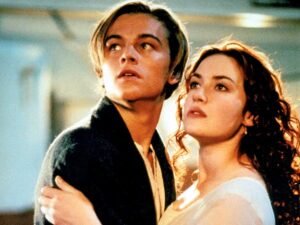Neil Gaiman has left an indelible mark on the urban fantasy genre. His imaginative storytelling and innovative narratives have redefined the genre, blending the magical with the mundane in ways that captivate readers. This post explores the significant influence of Neil Gaiman on urban fantasy, examining his unique contributions and the impact of his work on the genre.

Pioneering the Modern Urban Fantasy
Neil Gaiman’s entry into urban fantasy began with Neverwhere, published in 1996. This novel introduced readers to London Below, a hidden world of magic and mystery beneath the streets of London. Gaiman’s depiction of a fantastical realm coexisting with the real world set a new standard for urban fantasy. He seamlessly integrated mythical creatures, gods, and otherworldly elements into a contemporary setting, establishing a template for future authors.
Blending Mythology with Modernity
Gaiman’s work is renowned for blending ancient mythology with modern urban settings. In American Gods (2001), he explores the clash between old gods and new deities in a contemporary America. This novel showcases Gaiman’s skill in weaving diverse mythological traditions into a cohesive narrative. By juxtaposing ancient legends with modern issues, Gaiman creates a rich tapestry that deepens the genre’s thematic complexity.
Creating Rich, Multi-Layered Worlds
Gaiman excels at crafting multi-layered worlds that feel both familiar and fantastical. In The Sandman series, he blends elements of mythology, literature, and history with a darkly imaginative urban setting. The series introduces Dream, one of the Endless, who navigates a world where dreams and reality intertwine. This work not only expanded the boundaries of urban fantasy but also elevated the genre’s literary status.
Introducing a New Wave of Urban Fantasy
Gaiman’s success and innovative approach in urban fantasy have inspired a new generation of writers. His ability to merge the fantastical with the everyday has encouraged authors to explore similar themes. Books and series inspired by Gaiman’s work often feature complex characters and intricate plots set against urban backdrops. Gaiman’s influence is evident in the growing diversity and creativity within the genre.
Exploring Complex Characters and Themes
Neil Gaiman’s characters often grapple with profound themes such as identity, belief, and the nature of reality. His protagonists frequently embark on journeys that challenge their perceptions and confront deep-seated fears. For instance, in The Ocean at the End of the Lane (2013), Gaiman delves into childhood memories and the blurred line between reality and fantasy. This emphasis on character depth and thematic exploration has set a high standard for urban fantasy narratives.
Innovating with Narrative Structure
Gaiman’s innovative narrative techniques also impact the urban fantasy genre. His non-linear storytelling and interwoven plots create a sense of mystery and intrigue. In The Graveyard Book (2008), Gaiman combines elements of classic literature with a contemporary coming-of-age story. This unique approach challenges conventional narrative structures and offers readers a fresh perspective on urban fantasy.
Impact on Adaptations and Media
Gaiman’s influence extends beyond literature into other media. His works have been adapted into television shows, films, and graphic novels, further expanding the reach of urban fantasy. Shows like American Gods and Good Omens (based on his collaboration with Terry Pratchett) bring Gaiman’s imaginative worlds to new audiences. These adaptations highlight the enduring appeal of Gaiman’s storytelling and its impact on popular culture.
Conclusion
Neil Gaiman’s influence on urban fantasy is profound and far-reaching. His innovative storytelling, blending of mythology with modernity, and complex character development have redefined the genre. Gaiman’s work not only captivates readers but also inspires new authors and expands the boundaries of urban fantasy. His contributions have established him as a key figure in shaping the genre’s evolution and ensuring its continued relevance.

